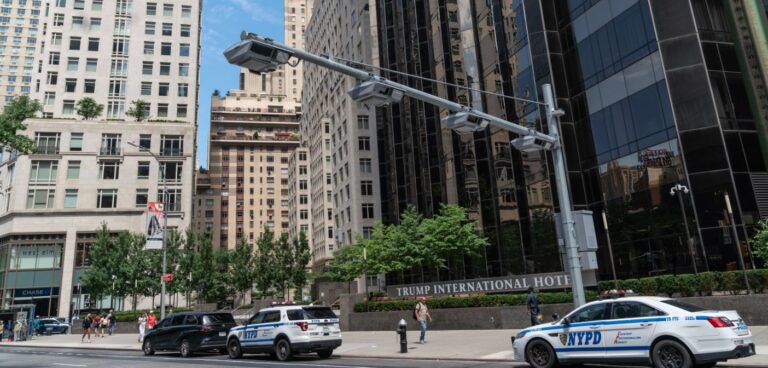The US state of New Jersey has filed a federal lawsuit aimed at stopping the rollout of the USA’s first congestion charge in New York City.
The proposed ‘Central Business District (CBD) Tolling Program’, which is planned for cars driving through central Manhattan, would divert pollution to neighbouring areas and impose an unfair cost on commuters crossing the Hudson river, argued New Jersey governor Phil Murphy.
In a complaint filed in federal court last month, Murphy accused US government agencies of turning “a blind eye” to the environmental effects of the charge on the Garden State when agreeing to approve the scheme, and administrators in New York of failing to distribute the proceeds of such a scheme equitably across the wider metropolitan region.
A congestion charge for Manhattan – reportedly the most congested urban area in the USA – was first proposed by former New York mayor Michael Bloomberg in April 2007, but was defeated by state lawmakers before being picked back up by former governor Andrew Cuomo and former mayor Bill de Blasio in 2019.
READ MORE: New venue and dates for Road User Charging Conference USA 2024!
In June 2023, the US Federal Highway Administration (FHWA) approved the proposed scheme, which aims to generate US$15bn (£11.8bn) in revenue for the Metropolitan Transportation Authority (MTA), New York’s public transport body, by charging drivers to enter Manhattan below 60th Street.
The exact cost of the congestion charge has not been established but is reported to be between US$9 (£7) and US$23 (£18) per day, with some credits, discounts, and exemptions for residents in the zone with an annual income lower than US$60,000 (£47,000) per year, emergency vehicles and those transporting people with disabilities, and frequent low-income drivers.
However, governor Murphy has condemned the scheme as unfair to the 400,000 residents of New Jersey who reportedly commute to Manhattan daily, and vowed to explore all legal options to impede its implementation.
“Unfortunately, New York’s proposal will prompt ‘toll shopping’, where more drivers seek different routes in order to avoid paying higher tolls, resulting in more traffic and more pollution.”
In response to the proposed congestion pricing scheme, New Jersey has passed legislation that gives tax incentives to New York companies to establish satellite offices in New Jersey.
In its lawsuit, New Jersey also accused New York of earmarking funds for areas affected by the scheme within the state while neglecting nearby counties.
FREE: Subscribe to the monthly Road User Charging Conference Newsletter!
“The [Federal Highway Administration] acknowledges that diversion of traffic… to bordering neighbourhoods will have impacts on air quality in those neighbourhoods, so the MTA proposes to fund mitigation efforts in the Bronx to the tune of US$130m [£102.5m],” its complaint said. “But not so for New Jersey.”
Lawyers for New Jersey added the MTA had also agreed to allocate 10% of revenues from the scheme to the Long Island Rail Road and 10% to Metro-North Railroad, which brings commuters in from upstate New York, “but nothing to New Jersey’s transit agencies”.
Furthermore, governor Murphy said New Jersey was “particularly disappointed in the lack of a thorough environmental review and lack of mitigation measures for impacted communities”, adding that “[the FHA’s] finding that the MTA congestion pricing program will not have any significant impacts is an error”.
The MTA called the suit “baseless”, pointing out that a 4,000-page environment assessment included input from New Jersey residents and officials.
The US FHWA said it does not comment on pending litigation.
To stay up to date with the latest speaker and partner announcements for Road User Charging Conference USA 2024, please click here. Delegate registration for the event is also open now. To register as a delegate, and to take advantage of our special, time-limited early bird rates, please click here.





